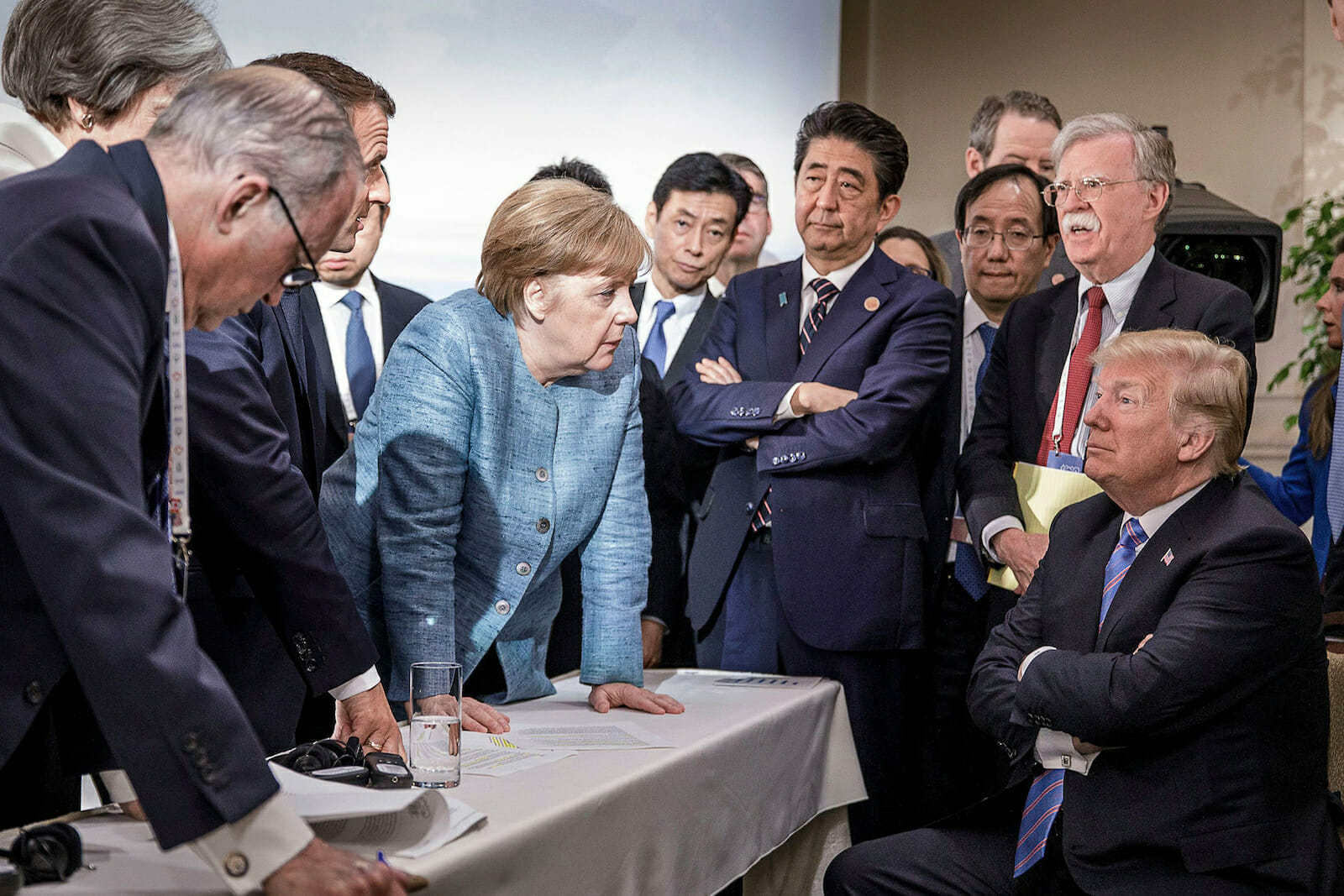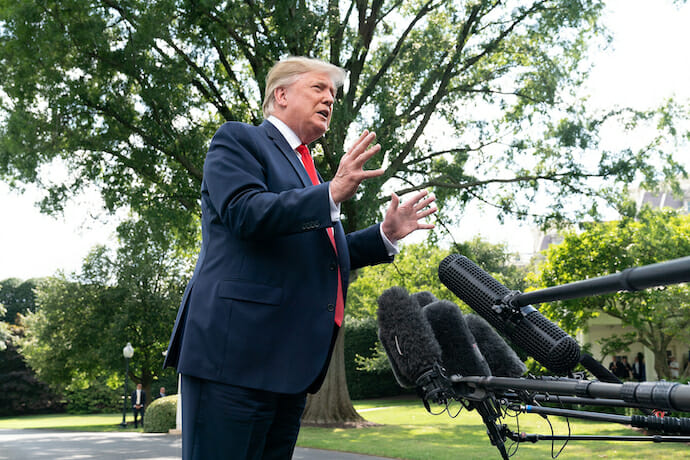
A Global Retreat from Democracy
Beginning in the 1970s, the tidings of democracy shifted. As country after country transitioned away from authoritarian regimes as a part of what Huntington called “The Third Wave,” the prevailing sentiment became one of intense optimism regarding the prospects of democracy. This led many at the time to think that the global movement for democracy had overcome a crucial critical point and that the geopolitical landscape would be altered permanently for the better.
But this optimistic outlook has proven to not be true. We are in the midst of what can only be characterized as a democratic recession, with fledgling democracies slowly deteriorating into open authoritarianism and even the most established of democracies following the trend.
A Brief History
As countries looked to industrialize and join the modern world in terms of economic development, they were left with a clear, proven model to success: the American way.
The Washington Consensus that developed in the wake of declining Soviet influence on the world stage led countries to pursue both free-market policies and democratic reforms, which served as requirements for entry into the larger global community.
In the absence of viable alternatives to U.S. economic, political, and cultural power, countries were incentivized to structure their regimes in such a way to open up the spigot of U.S. aid, as well as access to World Bank loans.
In this prevailing world order, dictators who wished to kick aside democratic norms and repress their people were forced not only to face the moral condemnation of the powerful western, democratic nations who dominated the geopolitical landscape but economic consequences as well. And for many, this was too much to swallow. The cost of repression was simply too high.
But, in the past decade, this trend has reversed strongly in the opposite direction. Fukuyama’s famous assertion in 1989 that we had reached the “End of History” in which liberal democracy finally triumphed over all else, seems to have been, if not entirely inaccurate, premature.
Downward Decline
Freedom House’s 2019 report on the state of global democracy (aptly titled “Democracy in Retreat”) paints a gloomy picture, one that is the result of a confluence of many factors. For the 13th year in a row, democracy has been in decline. While the retreat is still far less than the gains made in the 20th century, this is a pattern that should not, and cannot, go unchecked.
Despite what some may initially think, this decline has not solely been the result of fledgling democracies now trending towards authoritarianism, thus shifting the global scale. Even the most advanced of democracies have been swept up in what can only be described as a global retreat from democracy.

From the election of Brazil’s far-right leader who has expressed open disdain for democratic principles to the continued escalation of the Chinese repression of Uyghur people in the Xinxiang region, to the once picture-perfect example of democratic liberalization in Poland being hijacked by leaders more committed to nationalism than pluralism, this negative trend encompasses all parts of the world.
And while there are of course some exceptions to the trend (namely countries like Armenia with the election of reformist leader Nikol Pashinyan), they are far outnumbered.
Like with any other phenomenon of this scale, there is no single explanation. Yet, it is imperative that we at least attempt to identify the causes of this recession, for there can be no solution without first clearly defining what it is we are trying to fix.
I would argue that the primary causes of this recession are two-fold: a retreat from the liberal international order by developed powers in the West and the parallel rise of authoritarian regimes offering an alternative, and sometimes more attractive, path of development.
Democracy on the Backburner
The explosion of growth in democracies in the 1970s was due, in large part, to an unwavering commitment within American foreign policy to promote democracy abroad. The firm stance in Washington, coupled with the economic incentives it would tie to countries democratizing, offered an enticing package that caused massive gains for the global democratic order.
Now, unfortunately, that is not the case. Declining trust in government, pressing domestic issues, and the, at best, loose commitment to democratic norms of many political leaders have left an American public and government with only a lukewarm interest in using the financial and political resources needed to maintain a strong commitment for the promotion of democracy abroad.
Now, with the American spigot of aid gradually turning off, and an increasingly “you-do-you” approach foreign policy, strongmen leaders have been on the rise. And this effect has only become more pronounced in recent years, with the “America First” mantra of this administration flying in the face of historic commitments ranging from protection of shipping lanes to NATO.
Further, on the global stage, President Trump seems to define his evaluation of world leaders by an intangible metric entirely removed from how they govern their countries or treat their people. Notably, President Trump praised North Korean dictator Kim Jong-Un as a “funny” and “smart” guy who “loves his people.”
Compounding this, President Trump himself has openly flirted with some of the defining traits of authoritarianism. From his contempt for the media and labeling his political opponents as “un-American,” he is taking directly from the playbook of authoritarian leaders across the world and across history.
While it is hard to point to any one event that is truly responsible for the democratic recession, it is clear that, together, these events have redefined the structure of the geopolitical game. And this has paved the way for new players to emerge.
A New Challenger
In the backdrop of the breakdown of the Washington Consensus, there has been a parallel rise of a counterbalancing force: China. For many countries that would have once been enticed by the American package of aid and solid long-term economic growth at the price of democratic reforms, China seems to be offering them a path forward that provides the same benefit without the hassle of reform.
By any standard, China’s rise has been meteoric. With an economy that grew more than 9% each year from 2002-2011 and an incredibly fast-rising standard of living, China has become, for many growing nations, the model for rapid industrialization and growth. This has offered a viable path to prosperity for many countries around the world that stands in direct contrast to what the U.S. has been prescribing for years.
When taken in context of an increasingly assertive China, this dynamic represents a serious challenge to the future of the democratic world order. The United States spent significant economic and political resources planting the seeds of democracy a generation ago, but with China expanding its global presence through the Belt and Road initiative, it is likely the resiliency of those seeds will be put to a rigorous test.
And if recent trends are in any way of indicative of the future, the results of that test do not look promising.
Looking to the Future
That is not to say that democracy will forever perish from the Earth, nor is it to say that the recent decline of democracy will undoubtedly continue and define the 21st century. It is merely to say that it is not out of the question.
It is time that the United States and its allies around the world face up to the democratic recession. This means recommitting itself to absolute adherence to liberal democratic norms abroad and just as important, at home. It means rejecting the siren call of scoring cheap points by fanning the flames of political tribalism, and it means holding country above party, something becoming harder and harder to find.
While it may play well politically to say that your opponent is “unamerican” or that journalists critical of the current government are the “enemies of the people,” actions like these are toxic to the very foundation upon which our democracy rests. And in a world where so many fledgling democracies look to the United States for inspiration and guidance, it is imperative that we assume a higher standard of conduct.
If we don’t, we will no longer be able to call ourselves the leaders of the free world. Nor will there be a free world to lead.

